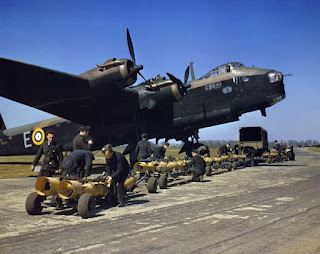Eighty years ago, proud but defeated the British evacuate mainland Greece
Most of the 48,000 British led troops were safely evacuated from Greece, but they had suffered 3,000 battle casualties. They had fought courageously, but never managed to establish a tenable defence line. Several thousand were left as prisoners. They had inflicted at best minimal delay on the German advance which reached Athens. British honour was safe; it had respected its commitment and stood by its ally at the time of need, but the military cost had been high. The desert army, weakened by the diversion of units to the Greek campaign, had gone from triumphant advance against the Italians a few weeks before to headlong retreat in front of the Afrika Korps. Many of the units from Greece sailed to Crete which was to serve as a bastion in the north eastern Mediterranean.
A British submarine, HMS Regent,
spent nine hours under Italian guns in the Albanian port of Kotor flying the largest White Ensign she had on board. She had sailed into Kotor to rescue Mr. Ronald Campbell, the British ambassador to
Yugoslavia (not to be confused with Sir Ronald Campbell, former British
ambassador to Yugoslavia and France) who had fled Belgrade ahead of the
advancing Germans. It came as a surpise to Regent's captain that Kotor was in Italian hands, but as she was on a quasi-diplomatic mission, he opened talks with the Italian forces. It was agreed to send a Lt. James ashore to locate Campbell and that an Italian staff officer should go onboard Regent as a hostage. James failed to locate
Campbell and German aircraft attacked Regent, which withdrew abandoning the attempt to rescue Campbell. Eventually the Italians flew Campbell back to neutral
territory in keeping with diplomatic usage. James was also exchanged for the Italian hostage.
Admiral Stark, chief of US Navy Operations, stated publicly that the US was conducting patrols 2,000 out in the Atlantic. This was a clear indication that the US was conducting a forward policy against the Kriegsmarine, albeit one that stopped short of undeclared war. The onus was thrown on U boat commanders to consider very carefully whether patrol vessels were British or Canadian, and thus attackable, or US. President Roosevelt aimed to suck the Germans into attacks on US ships, which would sustain his case for intervening against Germany, a cause that was still deeply unpopular in the US.
With some fanfare the RAF undertook its first combat operations with the new Short Stirling, the first four-engine bomber to enter military service. They raided the German port of Emden, which did not involve the risks of a long flight over German territory. The Stirling was the first of the RAF’s new generation of heavy bombers on which it had based its rearmament strategy. They were the weapons that would allow the RAF to fulfil the service’s doctrine of winning the war from the air. The bomber offensive against Germany had been waged ineffectually with press releases playing as great a part as aircraft, now it would be waged by the heavy bombers.



Comments
Post a Comment